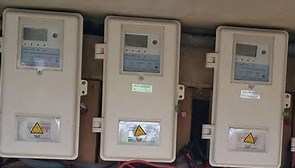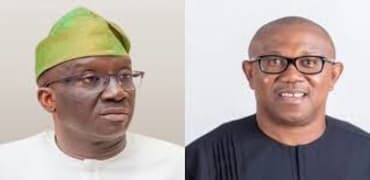FG to Deploy 7 Million Smart Meters Nationwide to Curb Estimated Billing
FG to Deploy 7 Million Smart Meters Nationwide to Curb Estimated Billing
By Achimi muktar
Imagine a Nigeria where your electricity bill reflects only what you actually use—no more outrageous charges, no more estimated billing drama. That future might just be around the corner.
In a bold move that could reshape the nation’s power sector, the Federal Government has unveiled a sweeping plan to deploy seven million smart meters across the country. This ambitious rollout, under the Presidential Metering Initiative, aims to finally put an end to the notorious estimated billing system that has plagued Nigerian consumers for decades.
The announcement was made by Mrs. Olu Verheijen, Special Adviser to President Bola Ahmed Tinubu on Energy, during an interview with the News Agency of Nigeria (NAN) in Abuja. Speaking as part of activities marking the second anniversary of the Tinubu administration, Verheijen revealed that the deployment of smart meters is more than a consumer relief—it’s a strategic reform to fix leakages, ensure fair billing, and revive investor confidence in the electricity sector.
“We are developing the policy and the frameworks that enable us to transition to a system that allows us to charge the true cost of delivering electricity,” Verheijen said. “More importantly, we want to drive efficiency across the gas-to-power value chain.”
At the heart of the plan is a push for commercial viability in Nigeria’s electricity ecosystem, especially in the gas-to-power segment. But the meters are just the start. The government is also moving to clear legacy debts owed to electricity generation companies and gas suppliers. These debts, which have long been a thorn in the side of energy producers, will be settled using a mix of cash and promissory notes.
Verheijen didn’t mince words about the root of the problem: “The inability to fund electricity subsidies and poor performance by Discos in revenue collection” has created a debt trap that needs urgent intervention.
But now, the government is flipping the script.
“We’re improving revenue assurance by ensuring that most customers on the grid are metered,” she said. “With this, we can end estimated billing and reduce collection losses so that only those who use electricity are the ones who pay.”
The government’s resolve is already being felt. Earlier this year, the Nigerian Electricity Regulatory Commission (NERC) slammed N628 million in fines on eight electricity distribution companies—including AEDC and IKEDC—for flouting estimated billing regulations. These penalties were based on the volume and duration of excessive billing—a clear signal that regulators are no longer turning a blind eye.
However, the smart metering initiative isn’t just about putting devices in homes. It comes with strings attached. The government will now demand performance commitments from all players in the electricity supply chain.
Verheijen stressed that stronger governance, especially within the Discos, is key to sustaining this reform. Regulatory frameworks will be enforced to ensure that these companies have the technical and financial muscle to deliver consistent and reliable power to Nigerians.
The estimated billing nightmare might finally be coming to an end—but it’s not just about fairness. This is a critical step in building a sustainable, investable, and consumer-friendly electricity market.
If the Federal Government stays the course and the meters roll out as planned, Nigerian homes and businesses could be entering a new era—where you pay only for what you use, and not a kobo more.


















